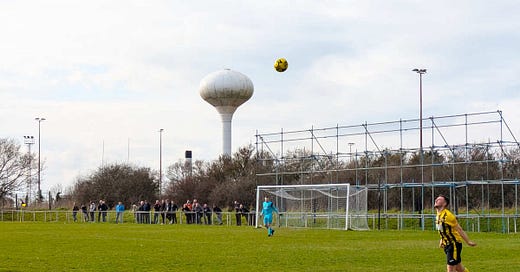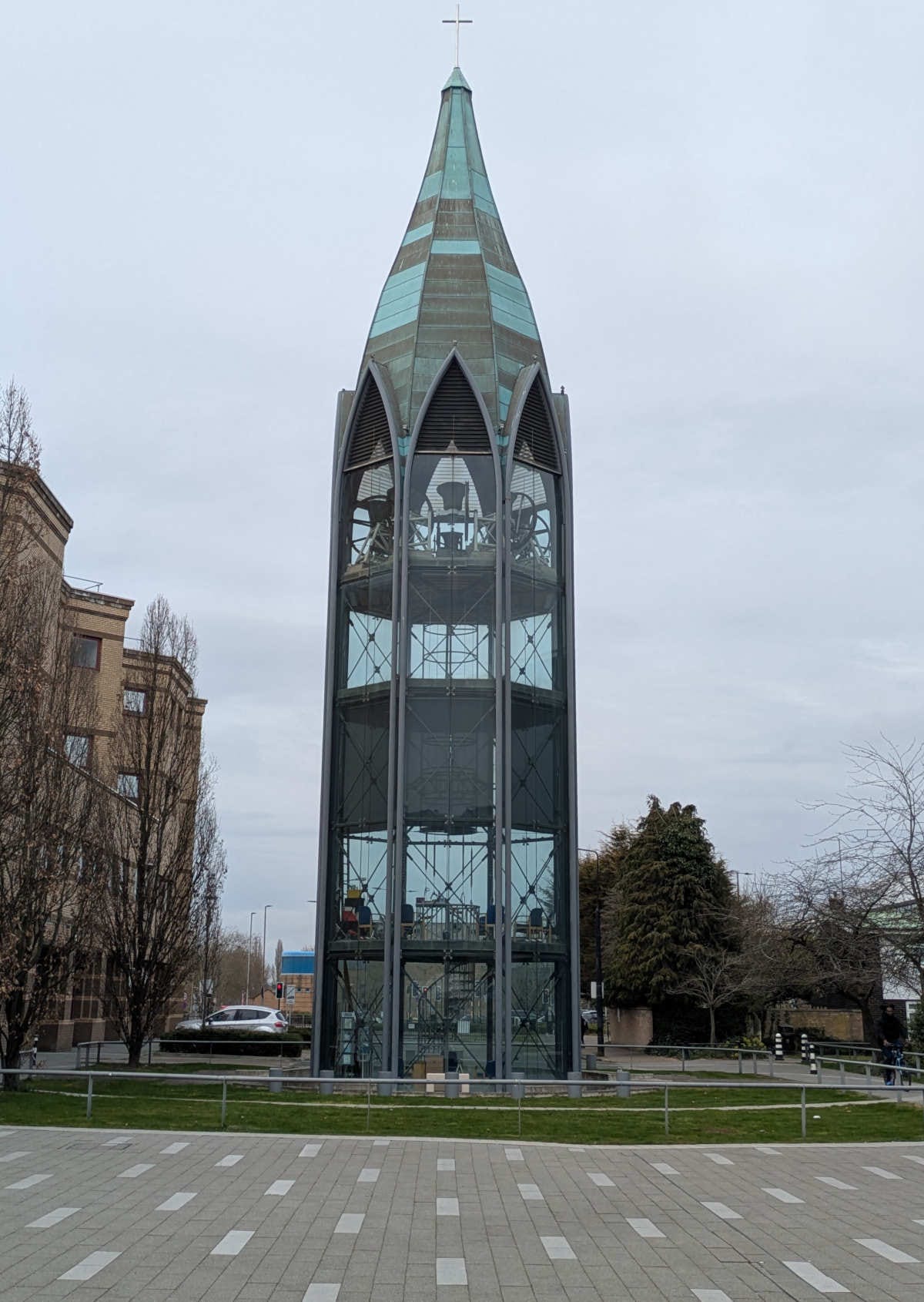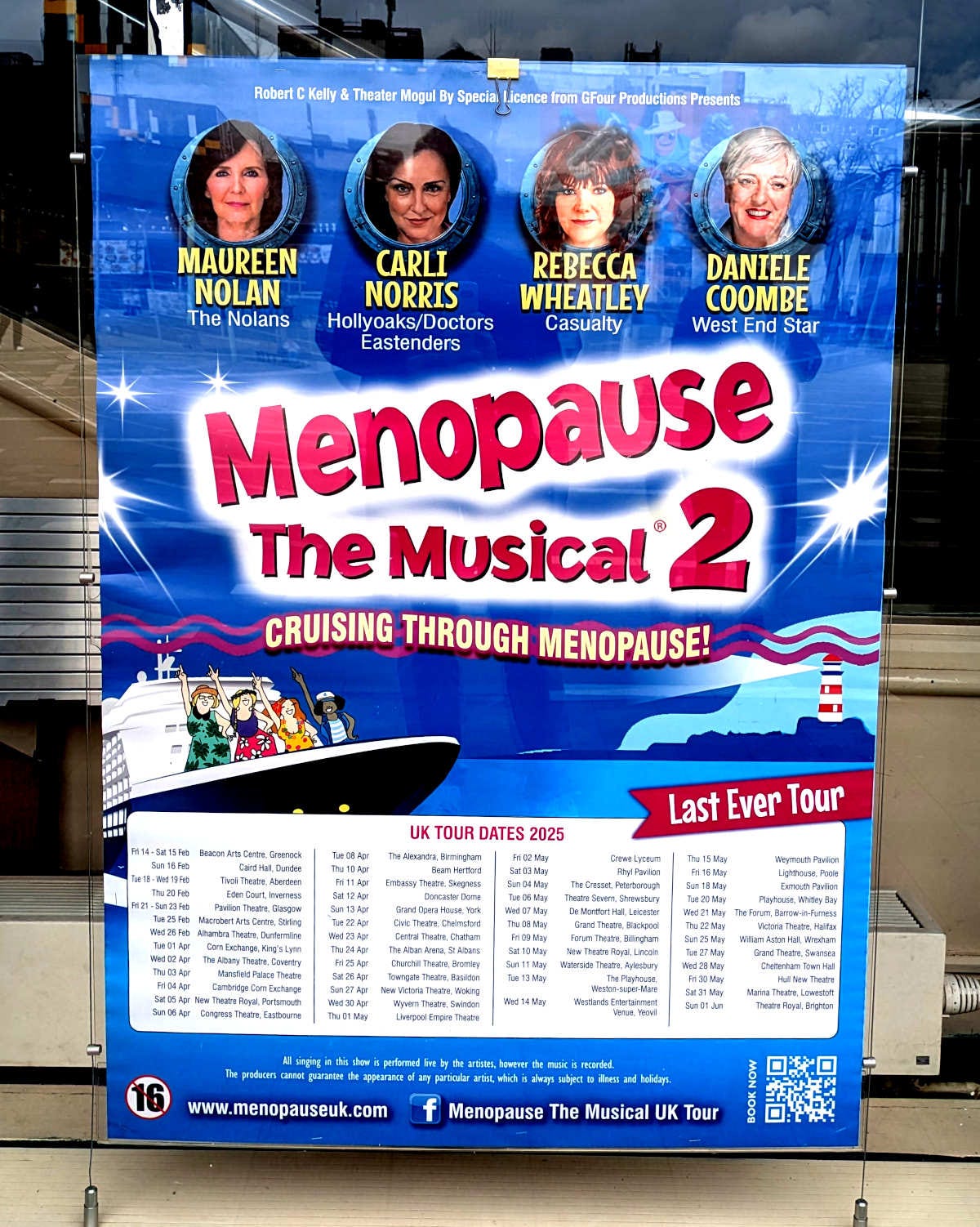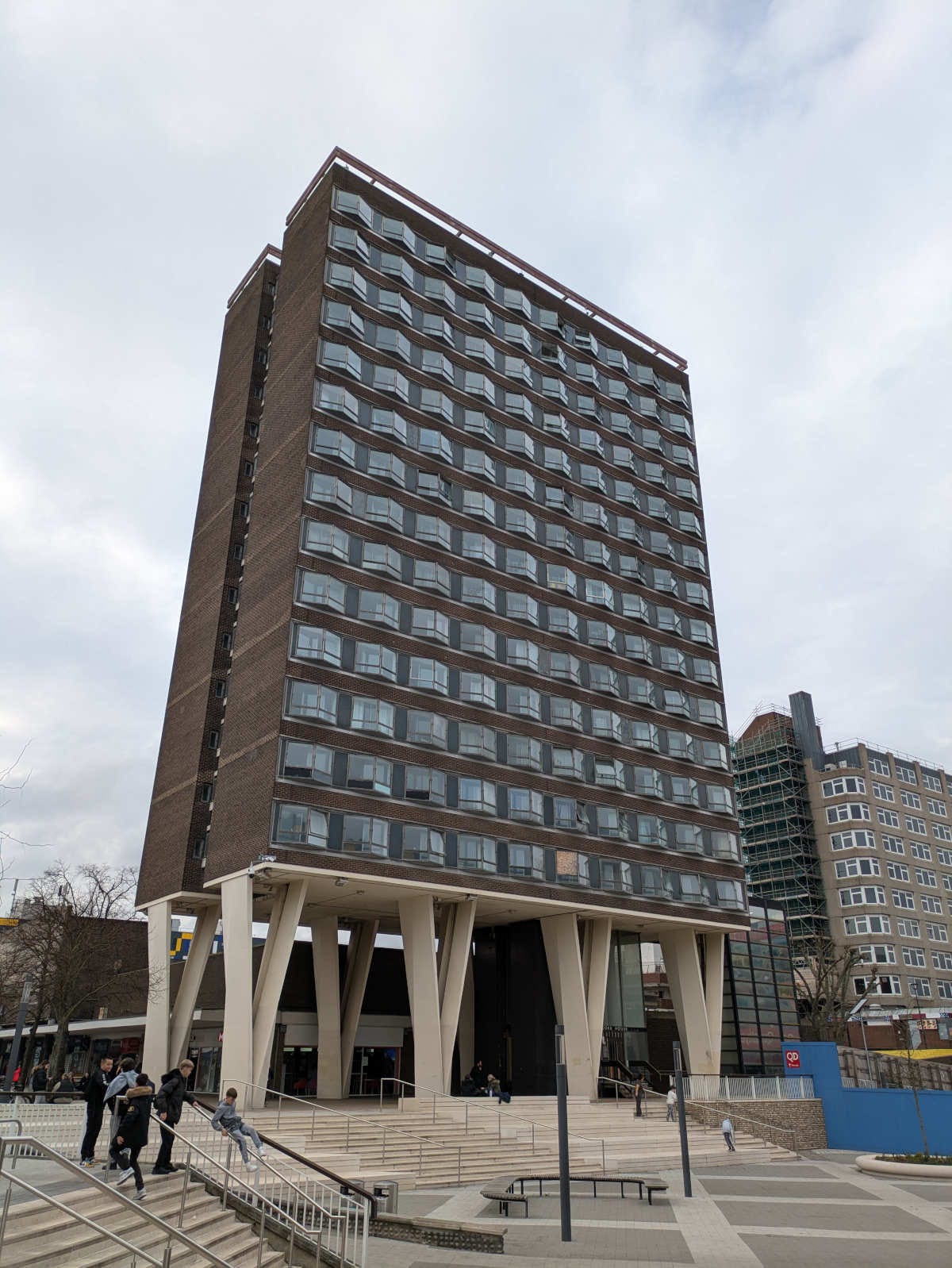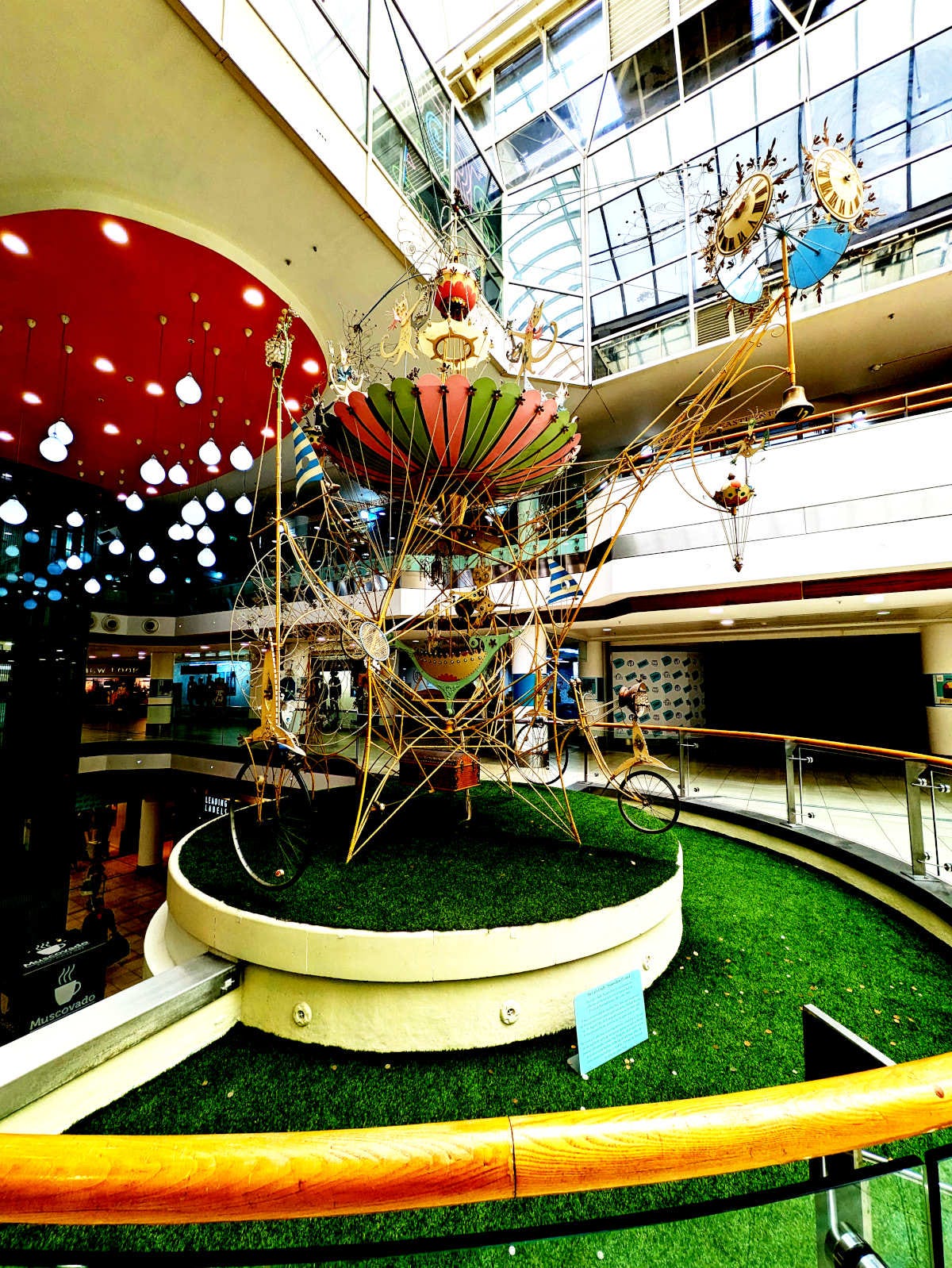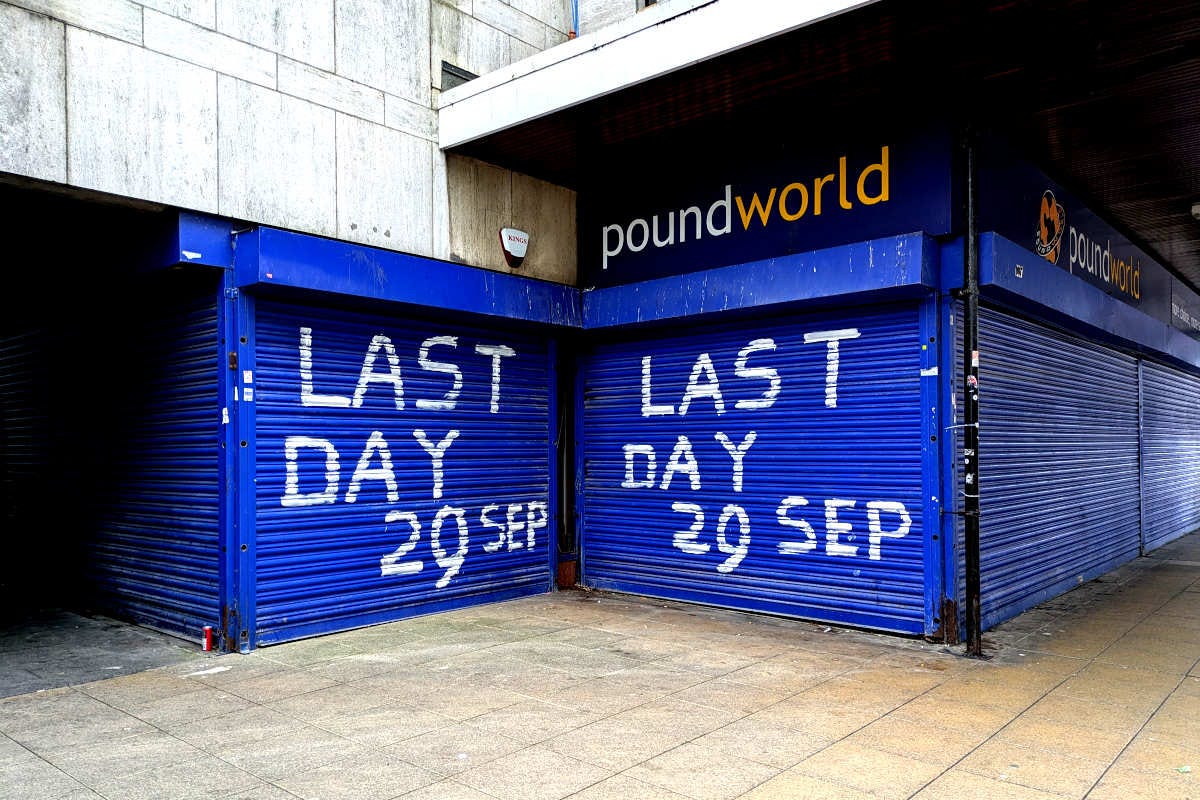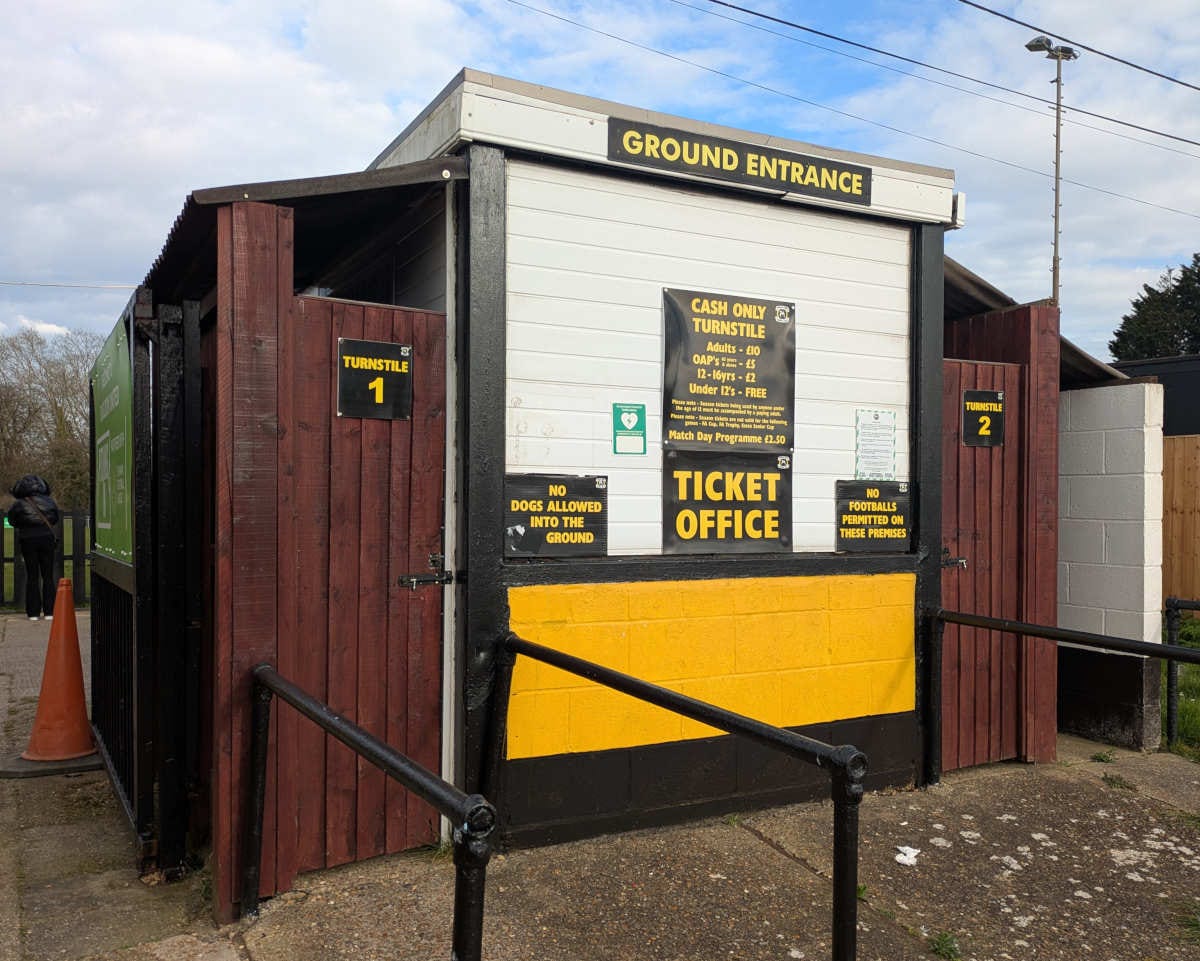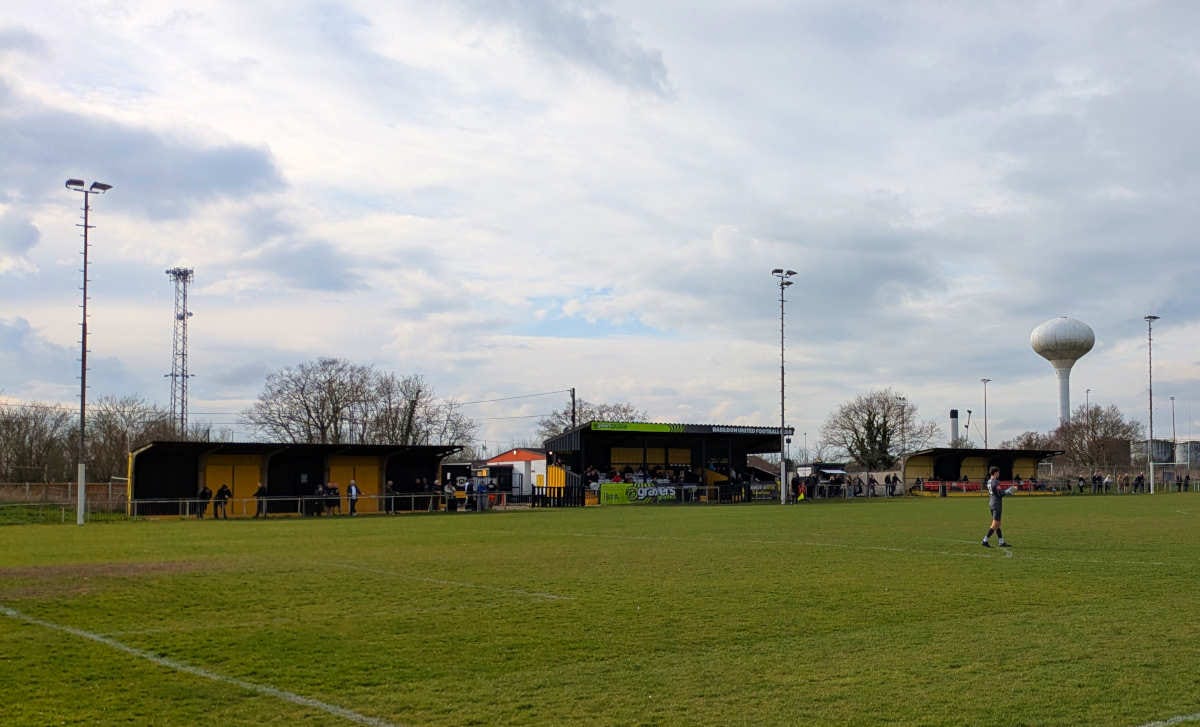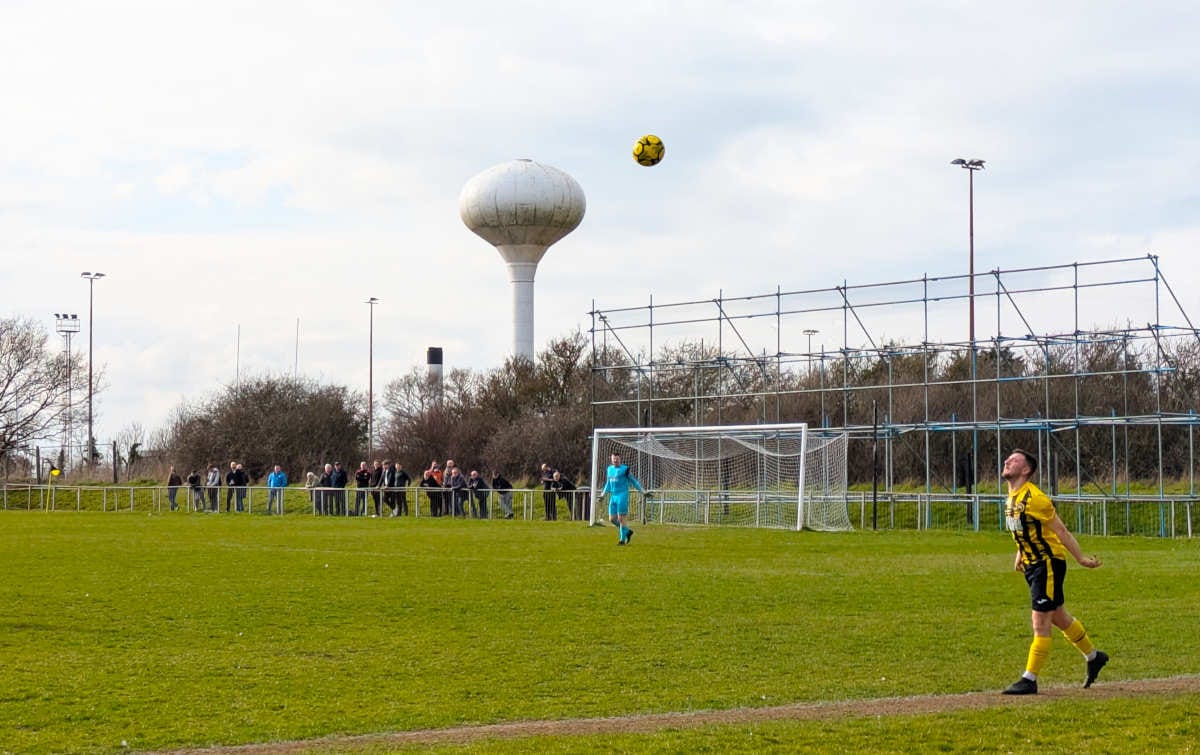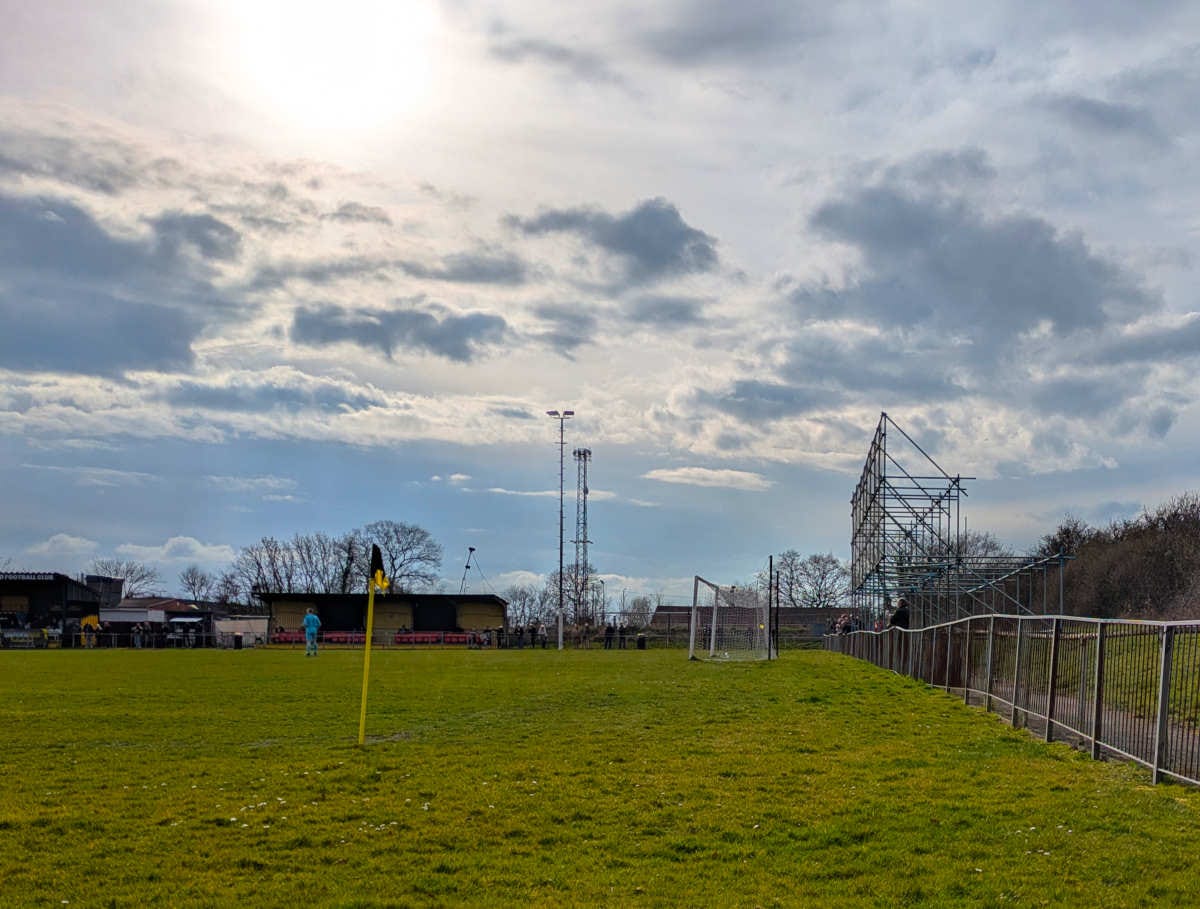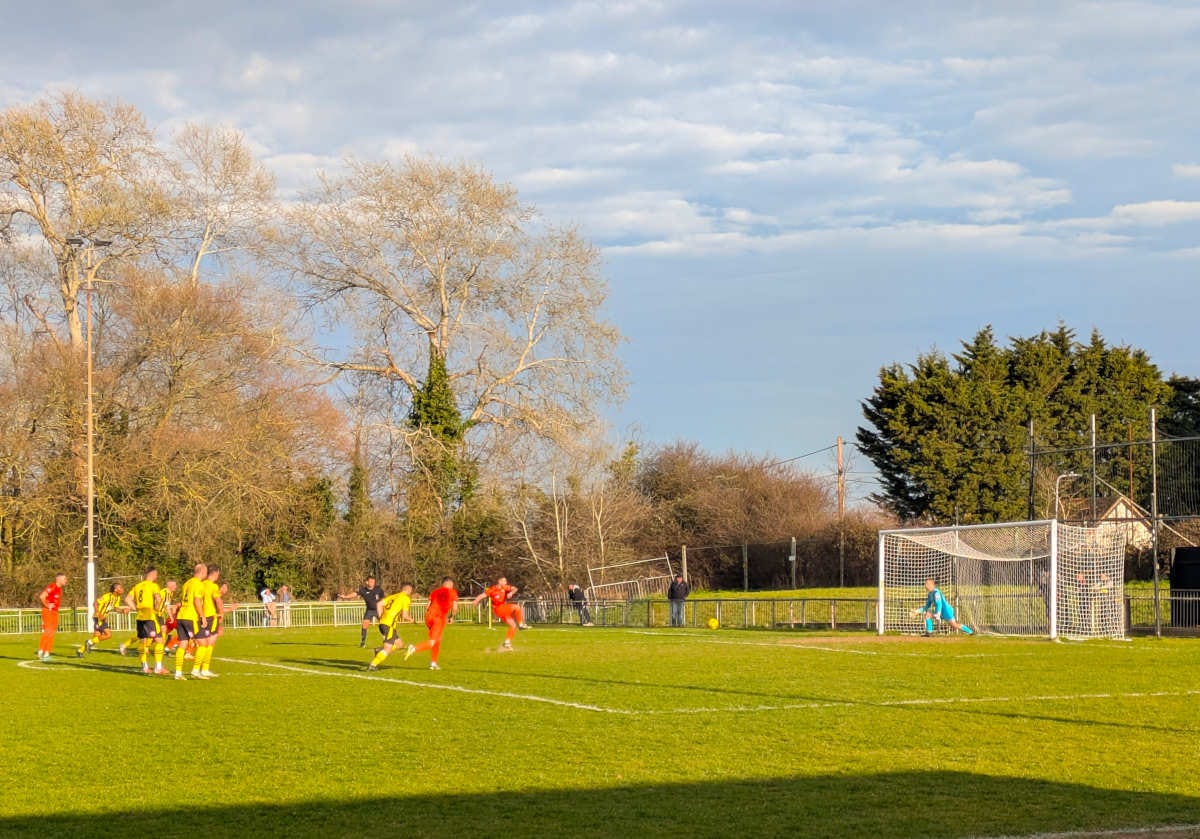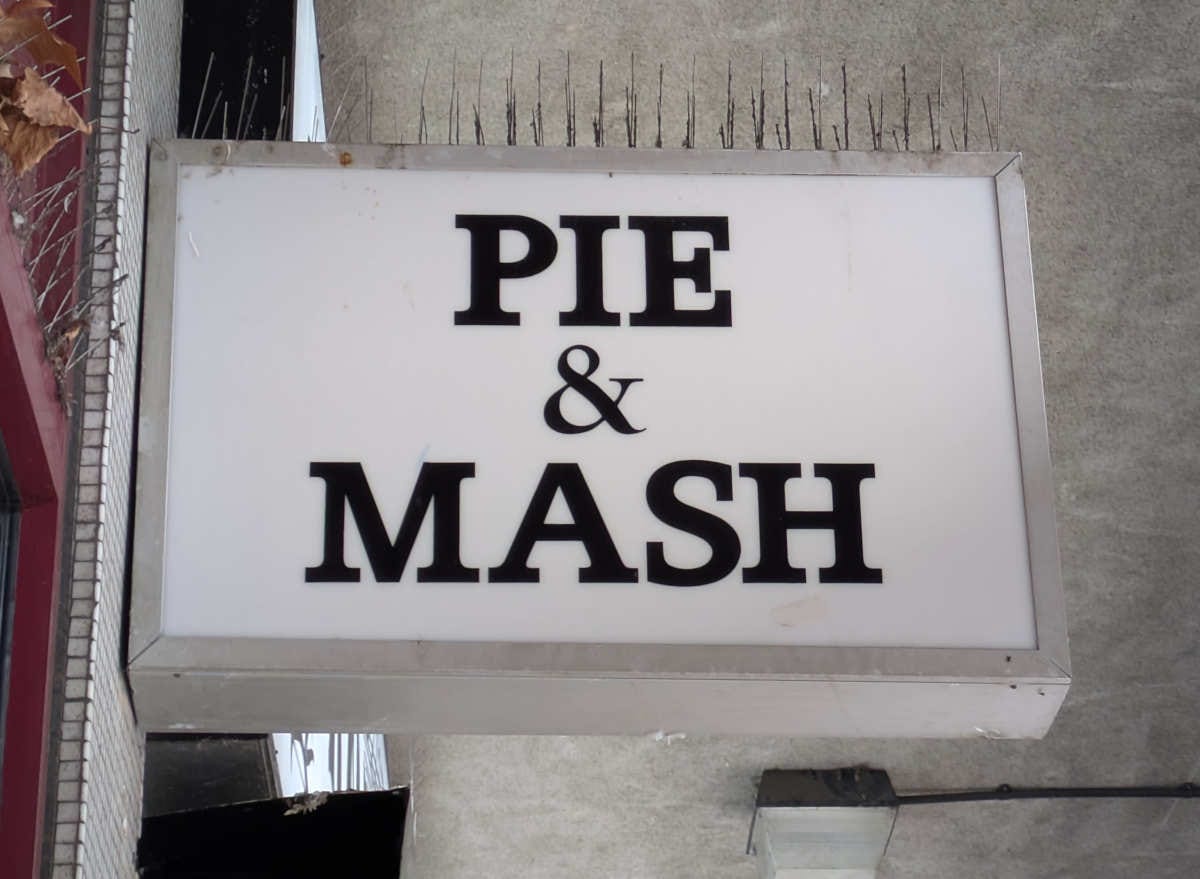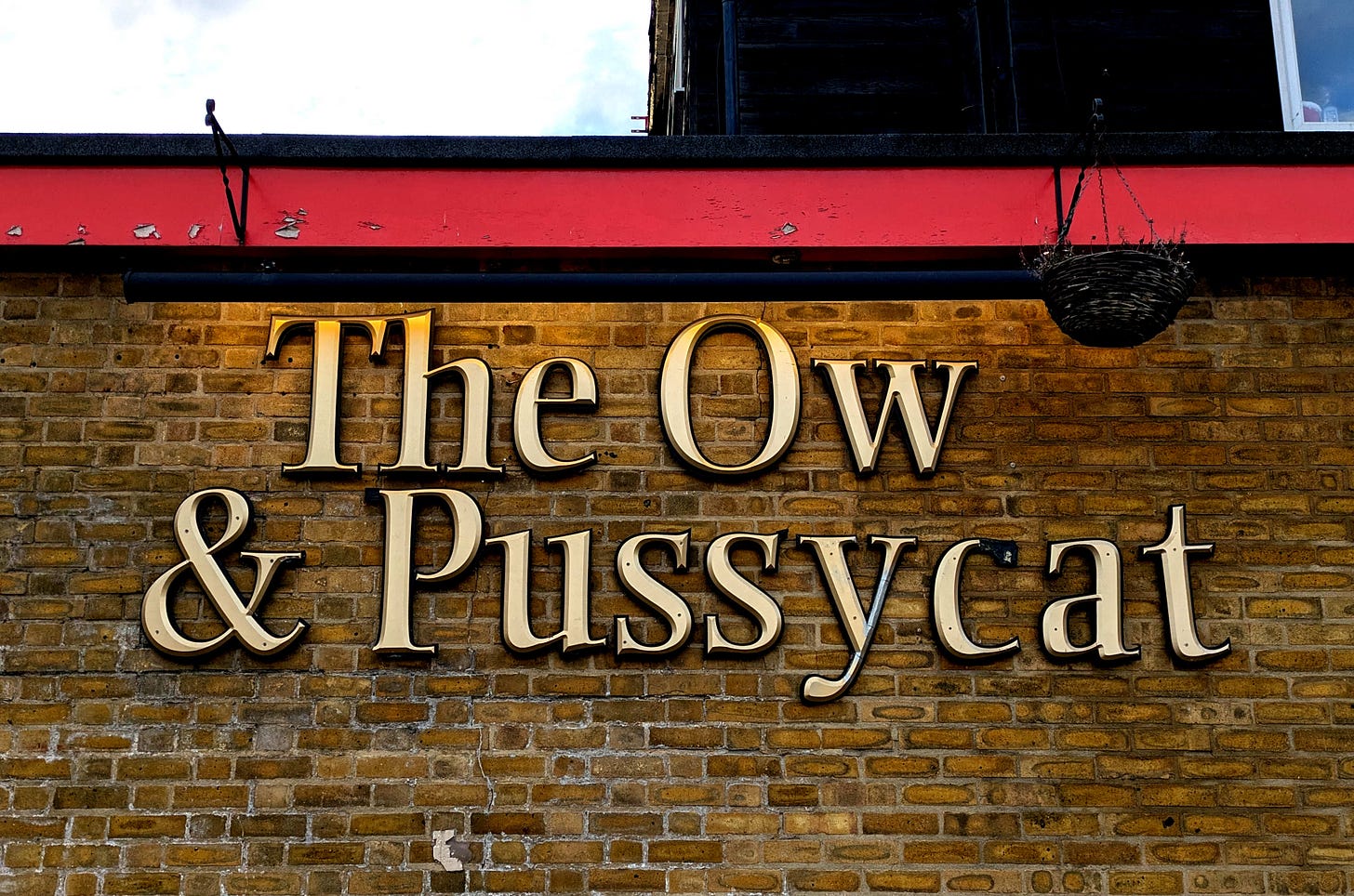Leaving Bas Vegas
Basildon represents a dream of post-war consensus that is now dead, and its football team isn't exactly doing that great either.
There was a time when we both expected and demanded better. There was even a time when governments tried to deliver it. But the 21st century is starting to feel like a lost century on this particular island, in which the managed decline that was so ruthlessly applied to parts of this country throughout the 1980s and 1990s has now spread to us all, regardless of occupation or locality.
Basildon was part of this wave of post-war optimism. Affordable housing and a job for life was the offer made, and people flocked to it. But that could only last so long. Social housing was sold off and industry moved out; not quite all of it, but enough. Within four decades the post-war consensus was withering on the vine, the optimism of those years an increasingly fading memory.
Saturday lunchtime in this part of the world is inflected with a few spots of rain, but our walk into the town centre is a pleasant one. It's all very familiar, this. Flat-roofed houses painted white, subways and roundabouts. Post-war Britain was not a wealthy country, and although the theme of these new ‘designated new towns’ was modernist by nature, they also had to be built to a punishingly tight budget. With the best will in the world, all new towns look slightly frayed round the edges these days, eighty years on from their designation.
This was the town in which my girlfriend grew up. Her dad was a surgeon at the hospital, a ten-minute walk from where we're staying this weekend. We're barely a couple of hundred yards from her childhood home. Former hometowns can feel like gatherings of ghosts, and some of those ghosts can age you. "This used to be Chelsea Girl", she tells me in the shopping precinct in the town centre with a passing comment which automatically ages both of us with my immediate recognition of the name, “I used to have a Saturday job here.”
None of that is to say that things haven't changed. "MORE RETAIL!!!" has been the rallying cry of unimaginative town planners for decades now and Basildon, like so many other towns and cities, has had many of its other amenities swept away in favour of more ways in which you can spend money, even though most people have got less of that to spend than ever.
The town centre is relatively bustling, but from more than one angle the decline is as visible as ever. It's all vape shops, charity shops and second-hand mobile phone shops; the only people who'll take over the spaces vacated by bigger, savvier retailers. There are two shopping precincts, Eastgate and Westgate, and just the one big supermarket.
The pointers towards that very different vision of the past are still dotted about the town centre. Brooke House, a brutalist block of flats built—for reasons best known the architect concerned himself—on V-shaped stilts, still dominates the town centre from some angles, while I'm reliably informed that the mural adorning the bus station also hasn't changed in years. The highly ornate Cats Cradle Pussiewillow III clock, which depicts the Owl and which has a hint of the world’s biggest dreamcatcher about it, has been moved indoors.
The 2017 documentary New Town Utopia makes reference to the defenestration of the town's artistic community in the 1980s and 1990s, and nowhere is this more visible than at the Towngate Theatre. There used to be a cafe and bar here at which people could take a break among like-minded souls, but today it's all closed up, with posters advertising a Creedence Clearwater Revival tribute band, Menopause: The Musical 2 and Jim Davidson’s latest Tour de Racisme. It's a fairly loose definition of the word 'culture'.
Basildon United live on the northern outskirts of the town, a 45-minute walk from the town. I kiss her goodbye at a junction on the top side if the town centre and peer at my map. It doesn't feel as though this walk should take that long but it does, on account of my having allowed myself enough time for squinting at maps and making sure I'm walking in at least the right direction.
Just after half two I'm wandering along the dual carriageway nearish the ground when a car pulls over, an old boy asking for directions. Now I know you should never go with strangers, but I later find out that he’s 75 and I think I could probably hold my own against him should I need to. And when I tell him that I'm headed there myself, he offers me a lift and I've found myself a travel companion for the afternoon. He's a Romford supporter, but his team are away at Sawbridgeworth and he didn't fancy the M25.
Past the tractor factory, left and double back on yourself. I've never seen so many tractors in one place in my life as at the New Holland plant near the ground. The ground is at the dead end of a lane, and the car park is full. Given that Basildon's average home attendance this season has barely reached three figures, this is something of a surprise. We find space on an adjacent verge instead.
Once inside, Gardiners Close is a pleasingly idiosyncratic place. There are three stands along one side, one a standing cover made of curved prefabricated concrete, and behind one goal is a large scaffolding construction that seems to serve no purpose whatsoever. The side opposite the stands has a couple of steps of terracing and a large number of signs warning attendees not to stand on the grass verge behind them. In the background is a large, onion-shaped water tower. Perhaps that’s where Depeche Mode live.
The bar is open, but there's nothing on tap today, though they do have cans. The food is, as I establish during the first half, superb. The home supporters are enjoying a drink in the warmth of the afternoon. If there are seven stages of grief to getting relegated, they seem to be pretty much in the acceptance zone already. Their team is seven points from safety with eight games to play. They need three wins to have a mathematical chance of staying up and probably five or six to have a realistic chance. It seems… unlikely.
Heybridge Swifts, their opponents today, don't have an enormous amount to play for beyond pride this afternoon. It's not the first time I've seen them this season, having seen them draw 3-3 at Redbridge in October. They were 12th at the time and they're 13th at kick-off this afternoon, a season of mists and mellow fruitlessness. They've certainly brought a few more today than the half dozen or so that ventured all the way to the exact dividing line between London and Essex back then.
But by half-time, the away team—managed by no less a luminary than the former West Ham penalty-blaster Julian Dicks—have been given something to think about. Basildon certainly haven't been playing like a team that has abandoned all hope. They fall behind after 19 minutes against the run of play but ten minutes later they're level, a shot from outside the penalty area which is greeted as much with a cry of surprise as one of celebration and which is greeted by an invigoratingly loud five-second burst of the local heroes’ Just Can't Get Enough over the PA. It's still 1-1 at the break.
For the first fifteen minutes of the second half it looks as though a half-time Dicks-ing may have blown some of the cobwebs from the Heybridge team. They're a bit tighter and a bit sharper, and they're enjoying more possession. But they're not really breaking through that much and Basildon do manage to create a couple of chances of their own, particularly a header at the far post which hits the side-netting, making it shimmer like a net curtain on a breezy day.
Time is just starting to run out when the match swings towards the higher-placed team in the way that these things tend to. A Heybridge run into the Basildon penalty area is a little too disorganised to be describable as ‘mazy’, but it ends in a clattering, mistimed tackle and a penalty kick. The goalkeeper dives the wrong way and Heybridge have a lead that they scantly deserve. Close to the final whistle, and with Basildon now pouring players forward to try and salvage something from their afternoon, Heybridge break and add a third with practically no-one on patrol in defence for the home side.
The applause for the home team upon the final whistle is generous. They really have given it everything this afternoon, and Heybridge have been slightly flattered by the win. It's probably too late to save Basildon United from relegation now, and it has been a disastrous season. They've now picked up four points from their last 24 matches. They're already on their fourth manager of the season, and they're staring relegation back to the Essex Senior League full in the face. But there were signs of life at Gardiners Close this afternoon. There's only a small number of them, but the fans still care. And while the team might be extremely limited, they did really give it a go on this occasion.
My companion, meanwhile, has been good entertainment all afternoon. He speaks exceptionally quietly so I'm constantly having to strain to hear him, but he has a lot of stories to tell—many of them seem to involve him almost but not quite getting into fights, and he has a serious dislike of television gardener Monty Don for professional reasons a little too complicated to go into here—and after the match he offers me a lift back to the south side of the town. I do note as we drive back that the route he uses to get there seems substantially shorter than the one I took to get there in the first place. As we pass the hospital, I’m given pause to think.
I'm dropped by a pub whose signage considers its name to be the “Ow and Pussycat”, and walk the five minutes back to the house. We spend the evening watching The Gold on Iplayer during which, bundle of contradictions that I am, I rail against both career criminals and the police. There are rumours that Canary Wharf is built on the stolen bullion from the Brinks Mat robbery. As I see it in the distance the following day while passing through I consider wandering off to buy a pickaxe and a miner's helmet but think better of it.
Basildon is a world that feels surprisingly familiar to me, essentially because I grew up near a town that grew its wings at the same time. And for all its flaws, I do miss that sense of optimism, the tailwinds of which blew through my own early childhood. Is it now just our lot, that we are destined to feel increasingly unhappy while failing to rectify the very problems that could make us collectively happier in the first place? We really do live in strange times.
From Cumbernauld to Crawley, the new towns are still with us. And it should be acknowledged that they were created in unbelievably financially-straitened times, at a time when the country was both exhausted and broke, but still was finding the time for projects such as this and the small matter of the foundation of the NHS. What’s our excuse?
In the centre of Basildon there is a large advertisement promoting the area, and Basildon United are right there; front and centre in it. That they should be unable to regularly attract so much as a three-figure crowd in a town of about 120,000 people could be down to one of several factors; they’re not very good at the moment, their ground isn’t in an especially convenient location, and there are a lot of non-league teams in this neck of the woods—the Basildon-adjacent Bowers & Pitsea are a division above them—to name but three. And they’re probably going back down to the Essex Senior League at the end of this season.
The club that hasn’t won since October was in a… mixed condition. The food was excellent, but the bar didn’t have anything on tap. Structures have been built which don’t (yet) seem to serve any purpose. Considering the amount of greenery around the place, it felt a little as though a good strimming would be in order, though perhaps that’s more of a summer job. In other words, this is a club need of a little more love; not that much different from their home town, really.


